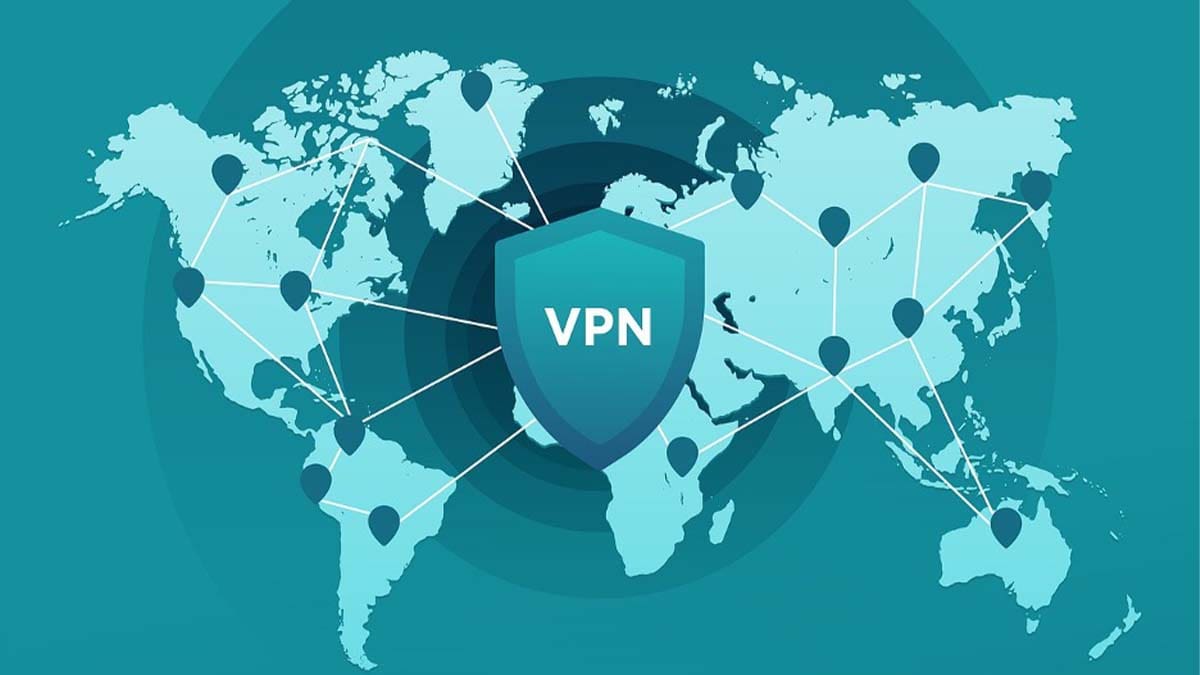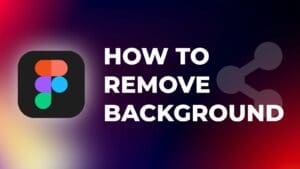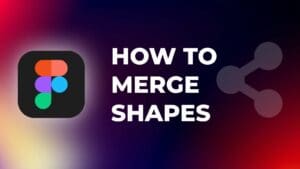The number of people using a VPN, or Virtual Private Network, to browse the Internet has been steadily increasing for the past few years. However, they are rarely used for the purpose they were initially designed for.
VPNs were created to enable businesses to connect their networks together over the Internet and to allow people to connect to them from home without worrying about security.
Nowadays, VPNs are often used to gain access to online content, including region-locked websites. For example, some Netflix content is restricted to certain regions, which means that someone living in Germany would have to use a VPN to watch a show available only in the US.
With the increase in popularity, VPNs are easier to configure than ever before. In some cases, all it takes is two clicks to send all of your traffic to the network and benefit from bypassing online censorship and protect your private browsing activity.
If this is the first time, you’re learning about the concept of a VPN, using one might seem daunting. To make things easier for you, we’ve put this guide together to tell you everything you need to know about VPNs. Continue reading to learn how a VPN works, what it does for you, and what advantages you gain.
What is a VPN?
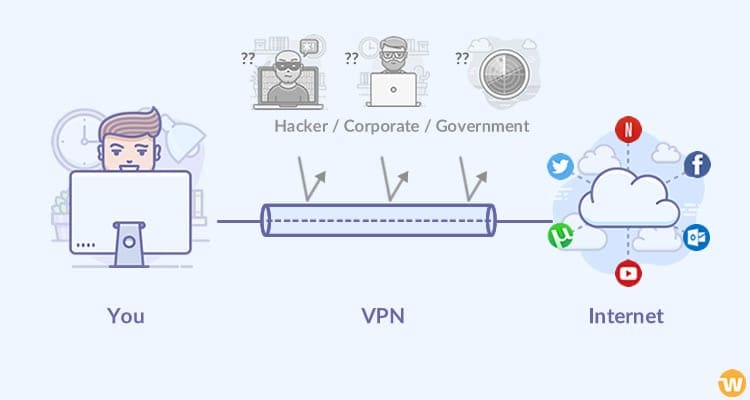

In essence, a VPN connects one of your devices (e.g., computer or tablet) to a server that enables you to browse the web using that server’s internet connection. That’s why if you connect to a server in France, for example, it will appear as if you’re actually from there, and you can access certain content that might be unavailable outside that country.
The VPN allows us to send information through a secure encrypted channel. This means that you can also hide your actual IP address and protect the data you’re sending. You can preserve your anonymity over the Internet and keep prying eyes away from the data you’re transmitting.
This might sound like you’re turning into a shady hacker, but the benefit of doing this is that you can bypass online censorship and enjoy the freedom that the Internet is supposed to bring.
Do I really need a VPN?
You’re probably wondering if you really need a VPN, especially if you aren’t interested in region-restricted content. The truth is our time online is increasing with each passing year. We connect with friends, do our shopping, work online, do our banking, and so much more.
The amount of information we generate and transmit is enormous, and it’s essential to keep some of this data from curious eyes. After all, you don’t want someone to gain access to your bank account or credit card information.
Your data is vulnerable. The government can have access to it and your internet service provider, hackers, employers, and random websites. A VPN can be used to protect your online property and secure your data from all potential intruders.
That being said, here are the main reasons you should use a VPN:
- A VPN provides online security.
- A VPN keeps your information private.
- A VPN offers you the freedom to browse restricted or censored content by bypassing region locks.
How does a VPN offer security?
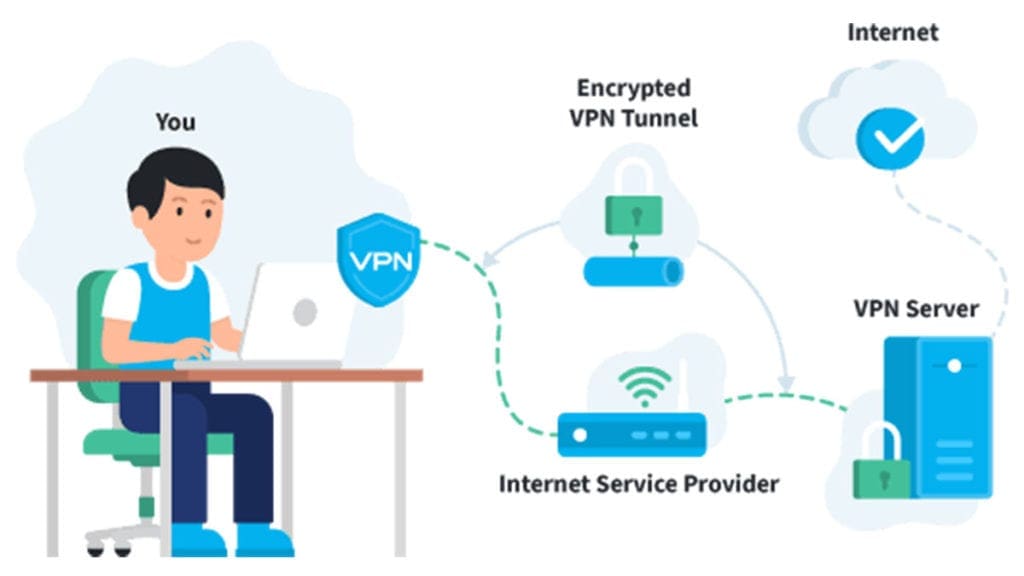

As mentioned earlier, a VPN encrypts all of the information that travels between you and the internet. Imagine going through a tunnel. Nothing outside of the tunnel can harm you. This is how your data travels through a VPN as well, and although it doesn’t make you invulnerable, it makes it much harder for third parties to gain access to your information.
If you connect to public networks, you should always use a VPN because you don’t know who else is connected to the same network. The same can be applied to your home or business network. A VPN can prevent others from gathering your data and profiting from it.
How does a VPN offer privacy?
Usually, when you browse the Internet, your IP address is exposed. A VPN will automatically hide your IP address because once you connect to it, you switch to the VPN’s IP. Without a VPN, anyone can track your behavior online and link your IP address to your identity.
When you use a VPN, all of your online actions lead to the VPN server. Furthermore, a reliable VPN service won’t monitor your actions so that you will remain anonymous.
How does a VPN offer freedom?
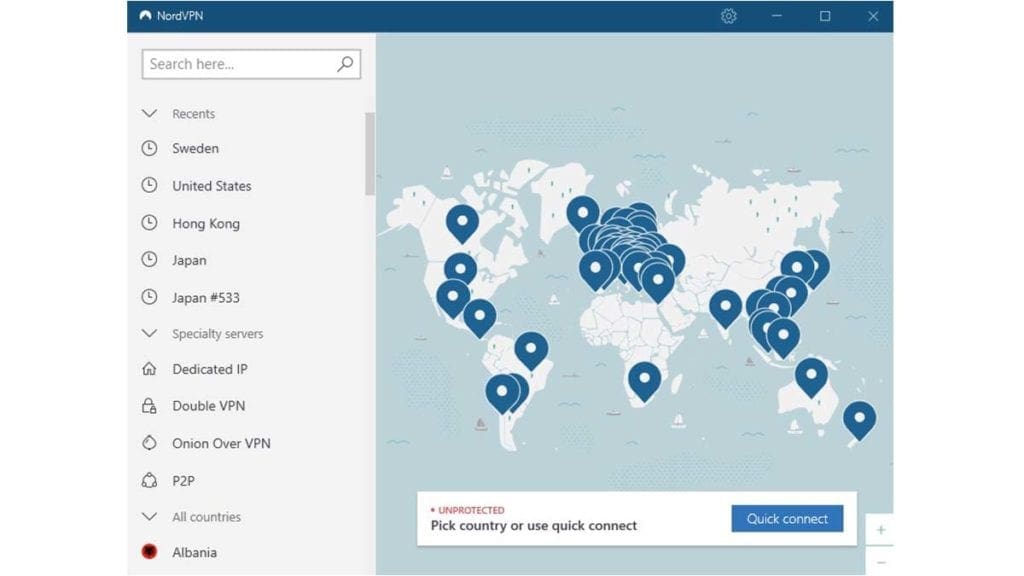

You can connect to several servers around the world by using a VPN. By doing so, you’ll gain access to content as if you’d be living there. Some countries restrict access to certain websites, social media platforms, or streaming services. A VPN can help you gain online freedom.
If you want to watch a show that isn’t accessible in your country, a VPN will enable you to do so. If you’re traveling on vacation to a country that restricts access to your favorite social media site, a VPN can bypass the censorship. All you need to do is find a secure VPN service and use it wherever you go.
Are VPNs safe and legal?
Some people hear about VPNs and immediately think they’re something that online hackers use to hide their tracks. While that could be the case, VPNs are perfectly legal in the Western world, where Internet freedom is essential.
In essence, if you use a VPN to browse the web, keep your data secure, and watch a movie on Netflix, you won’t have any problems with the law. However, if using a VPN for illegal activities, the activities themselves are still illegal no matter what. The act of using a VPN on its own is legal.
As for safety, it depends on the VPN service provider. Free VPNs are likely to sell your data to various companies since they need to keep the business running somehow. On the other hand, a VPN provider that charges a monthly subscription doesn’t usually log your activities and doesn’t store your information.
How to set up your VPN
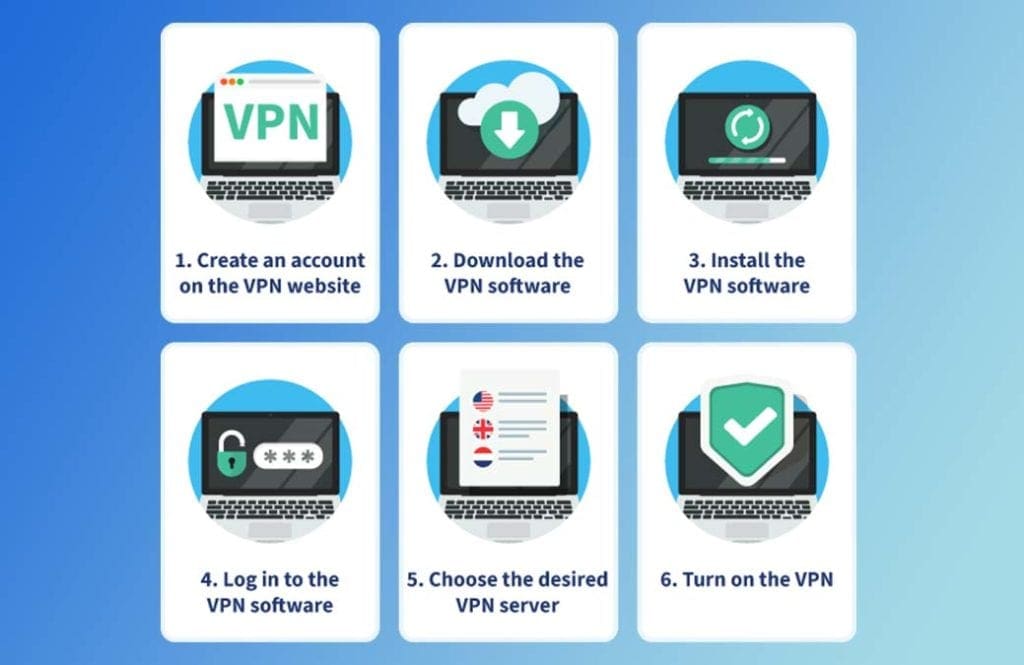

Connecting through a VPN is simple and doesn’t require any kind of tech know-how. The first step is finding a reliable VPN provider. There are many providers to choose from depending on your needs and budget.
That being said, it’s recommended to avoid those that are free because they will probably record your data to sell it to advertisers, and they sometimes have speed limits.
After you find a suitable VPN provider, subscribe to their service and install their app. Once installed, the software does all the work for you. All you need to do is choose the server you want to connect to.
That’s all there is to it. Once you enable the VPN, it will run silently in the background while you browse the internet securely and freely.
Final thoughts
Protect your data and enjoy online freedom by using a VPN. Are you sick of not having access to certain websites and content because it’s region-restricted? A VPN is the solution.
Are you worried about your data being harvested and sold to the highest bidder? Data is valuable, and most websites and online platforms you use will take it to sell it to advertisers. Protect it by using a VPN.

